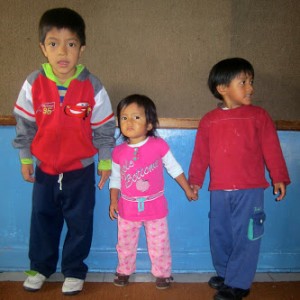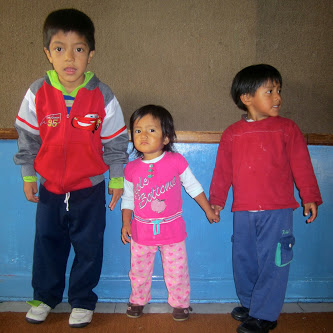The altitude was to blame for everything. We were tired by 9 p.m. and couldn’t make it up the smallest hill without being short of breath. We went from about 700 feet above sea level in St. Paul to more than 9,300 in Quito, Ecuador. It was no wonder we all fell asleep on a bus drive through the Andes, beautiful scenery and all.
I traveled to Quito on one of Campus Ministry’s many VISION trips. Our group of 12 volunteered at the Working Boys Center, which educates families and teaches them to manage their finances so they can eventually pull themselves out of poverty.

Truly, though, the altitude wasn’t to blame for everything. Certainly not for the more serious issues of poverty we encountered.
I’ve seen poverty before through my travels in places like Ghana and India, but this experience was much more personal. I was constantly surrounded by the families and children of the Working Boys Center, getting to know them on a personal level instead of merely catching glimpses of them on the streets and in their houses.
After trips like these, a feeling of gratitude tends to follow. I am certainly more grateful for my apartment bedroom, the same size as a room five people shared in Quito. After hearing a woman’s story about her husband leaving for the United States eight years ago and never returning or sending money, I am ever so grateful for my father, who has always been around.
But perhaps what I am most attuned to and grateful for as the semester begins is the educational opportunity I have taken for granted and even complained about many a time.
I sat in on an adult education session one evening in Quito, which is required for parents with less than a sixth grade education who send their children to the Working Boys Center. The woman I observed, Maria Juana, was working on addition, such as: 2+4=6. It took her around two minutes to complete a simple addition problem like this.
It’s unthinkable that an adult in the U.S. would not be able to provide the answer to such a simple problem at the snap of a finger. But that’s simply not the case in other parts of the world.
Once Maria Juana was asked to add up totals of items like gum and mints that she sold on the street, she was much quicker. She was able to add totals and make change in about half as much time as the simple addition. She knew what she had to know to survive.
I don’t need to know anything about psychology or cinema studies to survive. But my life is richer because I have the opportunity to do so.
As I begin my final semester of college, I hope I’ll think twice before complaining about writing a paper or completing a long reading assignment. At least I can.
Settling into what will surely be a busy end to senior year, there’s a lot to be grateful for and make the most of. At the tougher moments, I’ll think back on what I learned in Quito for a little motivation. Blame it on the altitude.
Baihly Warfield can be reached at warf3860@stthomas.edu.

